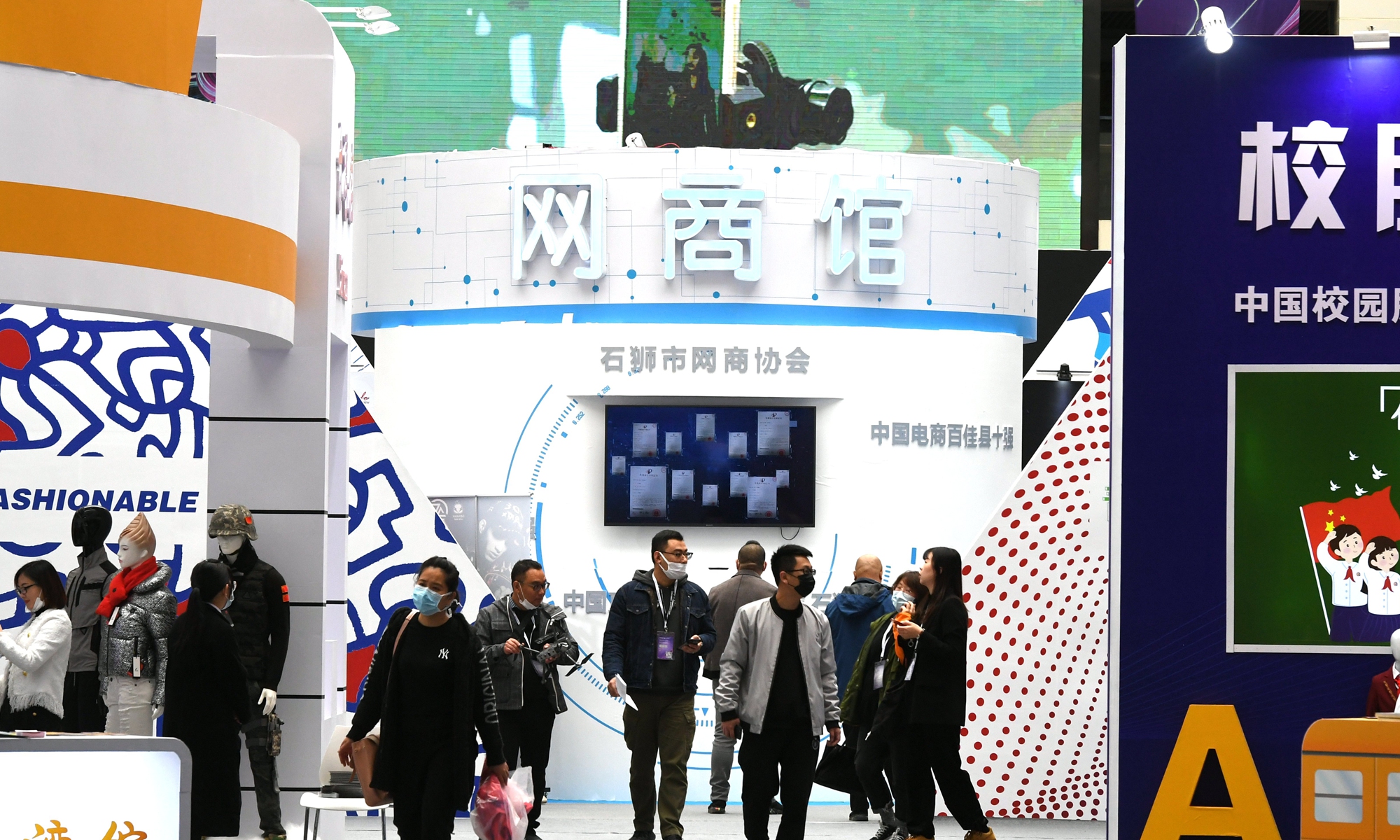
Quanzhou, a city in East China's Fujian Province that is known for the vitality of its private economy, passed the 1 trillion yuan ($150 billion) mark in GDP in 2020, reaching 1.016 trillion yuan, an increase of 2.9 percent year-on-year. The city's economy has held the No.1 position in the province for 22 consecutive years. Photo: cnsphoto
Chinese Vice Premier Liu He on Monday vowed unchanged and firm support to the country's private sector, a sign from the top of reassurance to businesses, clarified misinterpretations, and also fought back at foreign smearing of China's tightened regulatory measures over a range of sectors.
Rather than calling the regulatory efforts a "crackdown" as some foreign media had put it, Chinese experts said Liu's remarks reflect the true intention of the central government's unprecedented campaign: To benefit the long-term development of the industry, as well as the welfare of the general public.
"China's policy to support the private sector hasn't changed, and won't change in the future," Liu said in a video speech at the opening ceremony of the China International Digital Economy Expo 2021 held in Shijiazhuang, capital of North China's Hebei Province on Monday.
China will help the private sector play a bigger role in stabilizing growth and employment, adjusting structures, and encouraging innovation, Liu said, stressing the importance of protecting fair competition, and opposing monopolies in further developing the digital economy.
To further point out the significance of the private sector, the vice premier reiterated that it plays an important role in the economy, as it contributes more than 50 percent of taxes, 60 percent of GDP, 70 percent of technological innovation, 80 percent of urban employment and 90 percent of new jobs and firms.
"We must adhere to the direction of socialist market economy reform, persist in advancing high-level opening-up to the outside world, adhere to the basic economic system of the primary stage of socialism, and resolutely protect intellectual property rights," Liu noted.
Reassurance from the top
Liu's speech was a clear sign to shake off concerns of private enterprises, and it also indicated that anti-monopoly efforts will continue, telling entrepreneurs to bravely innovate, to conform to international rules, and assuring them that they will be only be better "protected," Wei Jianguo, a former Chinese vice minister of commerce, told the Global Times on Monday.
From the ongoing China International Fair for Trade in Services to the China International Import Expo, China will also launch a "greater policy" to support its goal of a higher level of opening-up, Wei predicted.
The reassurance came after a tightened restriction from the central government has affected a range of sectors, which according to a Bloomberg calculation, has triggered a selloff that at one point wiped off $1.5 trillion from Chinese stocks. The move has also led to worries and anxieties about prospects of the industry among domestic industry players and foreign investors.
The vice premier's words were a voice of authority, and came at a critical juncture to clear the concerns of industry players, as it has resulted in big discussions among people, a Beijing-based internet industry player surnamed Liu told the Global Times on Monday.
"We now foresee a fair, polyphyletic and promising environment for the industry, and subsidies for small start-ups haven't vanished despite tightened measures imposed on leading industry giants," Liu said.
It's also a signal that the internet sector, which has driven the Chinese economy for the last two decades, will continue, Liu said.
Latest official data also showed the months-long government-led regulatory move has created a better environment for the country's small players. As of July, 13.94 million new market entities nationwide had been established, recovering to pre-epidemic levels, according to the State Administration for Market Regulation (SAMR), China's top market regulator.
The SAMR noted on Monday that it will pay greater attention to strengthening supervision and anti-monopoly efforts, combating unfair competition, and preventing the disorderly expansion of capital. Administrative guidance meetings for 34 platform enterprises will be held in a timely manner.
Correcting foreign misinterpretationThe voice from the top authority also came as misinterpretations on China's ongoing regulations, especially its antitrust campaign, have been widely circulated on foreign media, with some claiming it indicated a trend of stronger support for state-owned firms and a retreat of private ones in China's economy.
Some also exaggerated the economic impact on the country's long-term growth.
"A wave of regulations could have a potential impact on the corporate world," Goldman Sachs' strategists wrote in a note published in August, and they predicted that "in an extreme scenario, private enterprises could be nationalized or subject to regulated profitability."
Yao Yang, dean of the National School of Development at Peking University, told the Global Times on Monday that anxieties that the country's antitrust push aims to advance the state sector while resulting in private sectors to retreat and the common prosperity goal might target large private firms are utterly groundless.
It's understandable that some foreign media don't understand or even misinterpret China's current policy, Wei said, since China is embarking on an unprecedented road that foreign countries have never tried, and China is now trying to rein in its economy to fall in the "trap" that foreigners once did, and guide the industry to develop in a healthier way.
Antitrust efforts are conducted in the every corner of the world. For the West, it will just end up a battle between interest groups, while the Chinese government is putting the general public's social welfare high up on the policy agenda, making a difference from the roots, Wei said.
From the rein-in of after-school tutoring, regulation on internet platforms, and achieving "common prosperity," the moves are leading to a clear goal - for the good of its people - that can guide you to properly understand China's policy before, now and in the future, Wei noted.




